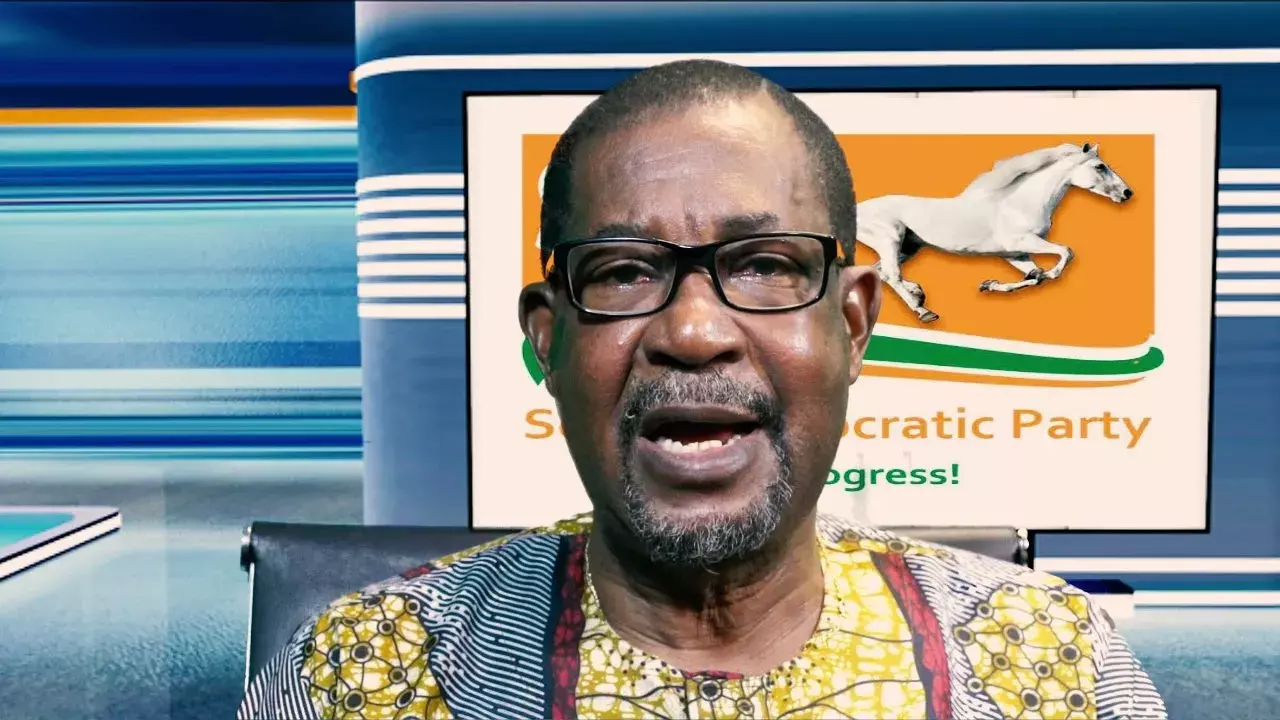Alleged Mambilla fraud: AGF did not give EFCC fiat to prosecute me– Agunloye
The AGF did not give fiat for the investigation. It was the Solicitor-General of the Federaion that gave EFCC fiat when he does not have such power under Section 174 of the Constitution (as amende); it is the exclusive reserve of the AGF (to do so).;

Dr. Olu Agunloye, former Minister of Power and Steel, told a High Court of the Federal Capital Territory (FCT), Apo, on Thursday that the Attorney-General of the Federation did not give the Econimic and Financial Crimes Commission (EFCC) the fiat to prosecute him.
The EFCC chargedAgunloye, who served as a minister in the administration of former President Olusegun Obasanjo, before Justice Jude Onwuegbuzie with seven counts bordering on forgery, disobedience of presidential order, and corruption.
He was alleged to have, among others, on May 22, 2003, awarded a contract titled “Construction of a 3,960 megawatt Mambilla Hydroelectric Power Station on a build, operate, and transfer basis to Sunrise Power and Transmission Company Limited without any budgetary provision, approval, or cash backing.
The prosecution also alleged that it traced some suspicious payments made by Sunrise Power and Transmission Company Limited to the former minister’s accounts.
The defendant, however, pleaded not guilty to the charge preferred against him.
At the resumed hearing of the case, he moved his motion seeking the leave of the court to allow some legal luminaries to participate in the hearing of his preliminary objection against the EFCC.
The former minister, through his counsel, Adeola Adedipe SAN, told the court that, contrary to constitutional provisions, the AGF did not give the EFCC the fiat to investigate and institute proceedings in the case against him.
Adedipe cited Section 174 of the 1999 Constitution (as amended) and told the court that instead of getting such a fiat from the AGF, the EFCC got it from the Solicitor-General of the Federation.
He urged the court to take judicial notice under Section 124 of the Evidence Act.
Adedipe informed the court that the current AGF, Lateef Fagbemi, SAN, was sworn in on Aug. 21, 2023, while the prosecution filed the charge against Agunloye on Sept. 7, 2023.
“The AGF did not give a fiat for the investigation. It was the Solicitor-General of the Federation that gave the EFCC fiat when he does not have such power under Section 174 of the Constitution (as amended); it is the exclusive reserve of the AGF to do so.
“Granting the application to allow amici curiae (friends of the court), including the AGF; the President, Nigerian Bar Association (NBA), Yakubu Maikyau SAN; a former Minister of Justice, Chief Kanu Agabi SAN; and a former NBA president, Joseph Daudu SAN, to participate in the hearing of the said preliminary objection would not prejudice the court or EFCC,” he said.
It was curious, he said, that the commission did not want its principal, the AGF, to give support to the court in the application of justice.
He added that the reason for this was very clear since the anti-graft agency did not get his AGF fiat.
He told the court that since assuming office, the AGF had been giving directives that all corruption-related cases against public officers should be investigated by the Independent Corrupt Practices and Other Related Offences Commission (ICPC).
Adedipe said this was in line with the decision of the Supreme Court in Nwobike vs. FRN, which delimited the power of the EFCC to financial crimes alone.
He therefore urged the court to grant the application, saying that the prosecution was aware that the court had the power to grant the same, which was why it did not want the court to grant it.
Responding to the prosecution counsel, Abba Mohammed, said the Supreme Court decided in FRN vs. Osahor and others that the power of the AGF under Section 174 of the Constitution is not exclusive to him.
According to him, this implies that other authorities can initiate criminal proceedings in court, adding that in this instance, the AGF did not complain that the EFCC usurped his power.
Mohammed added that the Appeal Court had decided in Audu vs. FRN that the EFCC can prosecute offenders under the ICPC Act.
He urged the court to take judicial notice that the Solicitor-General of the Federation, who signed the fiat to prosecute the defendant, was the acting AGF as of August 8, 2023, as there was no substantive AGF then.
He said that at the last sitting in the case, the court did not raise any doubt that it could determine the defendant’s preliminary objection and, as such, did not express any need to invite any amici curiea
The prosecution counsel, therefore, urged the court to decline granting the application as prayed by the defendant.
He submitted that the Supreme Court has clearly stated the situations under which the court can exercise its discretion in allowing amici curiea, which he said was only when the court was in doubt.
After listening to the parties submissions, Justice Jude Onwuegbuzie adjourned until April 15 for a ruling on the application.

